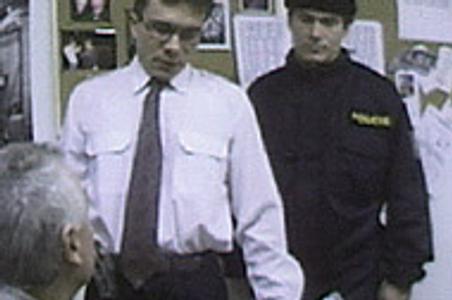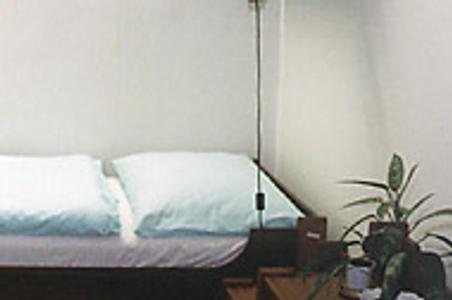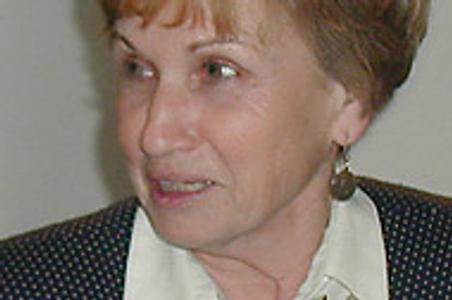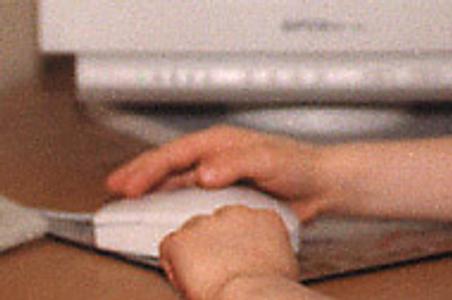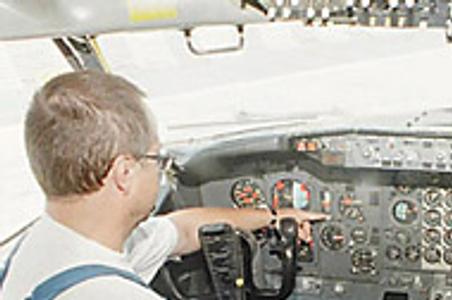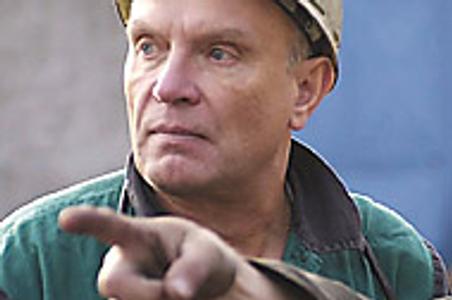Archive of articles - April 2001, page 6
If you desire to read an old article, use the search bar or select the publication date.
BSA turns up the heat in war on software piracy
Five policemen storm the office of a small company and order a manager to stand back from his computer. He looks on nervously as they rifle through his desk and find bootlegged software CDs. They dump his computer into an evidence bag, take him into custody, and lead him out of his office.The scene was staged, part of a video sent to 7,000 of Slovakia's 58,000 small and mid-sized firms in February by an association of software providers named Business Software Alliance (BSA).BSA leaders say that although the events depicted on the tape are not real, by distributing the tape they are sending a clear message to businesses: software piracy is a serious crime, and a five year maximum jail sentence is a real threat if company software is not properly licenced.
IT Briefs
300,000 Slovaks consider Internet connections
Rewiev: Traja Mušketieri: Keeping musketeer theme in check
Many restaurants use a theme to attract clients, some of them more successfully than others. The key seems to be packaging a historical or cultural idiom that doesn't get in the way of actually eating or drinking the fare on offer.Bratislava's newest restaurant, the Traja Mušketieri, is another entry in this long catalogue. It has wenches in low-cut bodices, flagons of beer and roughly-served meals, although no musketeers beyond the beardless youth at the bar. It serves hearty Slovak cuisine, and the nuisance element of the theme should not keep diners from a repeat performance.
Business Briefs
Fico offered seat on SPP privatisation commissionEconomy Ministry flaps over Aligator exhibitCentral bank lowers key interest ratesParliament moves law on parks to second reading
'Red-eyed rats' knock MPs' work conditions
With the Slovak unemployment rate hitting an historic high in February (20.7%), recent complaints by several members of parliament over their working conditions have drawn public scorn, causing at least one MP to eat his words.Marián Mesiarik, an MP for the coalition Party of Civic Understanding (SOP), suggested on March 20 that "a closed-door parliamentary meeting be called to discuss ways to improve the poor conditions under which Slovak lawmakers are forced to work and live".Mesiarik's disgruntled colleagues say that work conditions in parliament are threatening their physical health. The lighting is too dim, there are "microbes in the air", and the menu at the parliamentary buffet is laden with "fatty and unhealthy" food selections, they say.
Slovak IT firms taking skills to world
Slovak students worked on outdated computers in the 1980s as machines aged and the government had no money to invest into IT. One of the consequences was that they remained fluent in the basic computer language Assembler, long after their Western cohorts had abandoned it. By using this language, one Slovak company was able to turn a seemingly disastrous situation in schools on its head.Software company Eset, whose NOD32 anti-virus software may, IT experts say, be the best on the planet, bagged clients such as Microsoft America and Microsoft Ireland in 2000, while its revenues grew 200%. The firm says this success was due partly to the fluency of its programmers in Assembler. Anti-virus software is more difficult to write in Assembler, Eset officials claim, but the programmes that result are more efficient."Sometimes, potential clients are uncertain about Slovakia," said Tipor Papp, chairman of Eset's advisory board. "But they are excited about the computer language."
Jakabová: "Politicians make problems"
BUDAPEST - As the only ethnic Slovak member of the Hungarian parliament, Maria Jakabová is often asked to greet Slovaks on official visits to Budapest. Sometimes it irks her. "Either I'm valuable or I'm not valuable," she says. "It shouldn't be because I am Slovak."Born in 1936 to a "peasant family" in a small Slovak village in Hungary, Jakabová began her career teaching Slovak in Budapest. From 1983 to 1992 she was director of the Democratic Federation of Slovaks, and has been a member of parliament for the Hungarian Socialist Party since 1985.Jakabová supported radical legislation that established 'self-governments' for Hungary's 13 minorities in 1993. As a crusader for minority rights, she is as candid about the problems of Slovakia's Hungarian minority as she is about those of Hungary's Slovak minority.
Distance learning connecting Slovak students to the world
During Katarína Dudáková's stay in 1995 at an American High School, she was stunned by how little most Americans knew about Slovakia. She was asked if Slovakia had running water, if Slovaks had regular access to showers, if they had television.Now Dudáková is a college student participating in a class in which Slovaks and Americans share detailed information about their countries' economies and cultures.Dudáková and another 22 students on a City University Trenčín (CUT) marketing course use the Internet to discuss marketing, advertising and retail conditions with students from Washington State University. Posting questions and answers on a web site called Blackboard.com, they work together on case studies and evaluate each others' final results.
Carriers wary of airport sale
News that Bratislava airport could be partially privatised in the near future has struck fear into existing and potential carriers in Slovakia over the possible influence that Vienna's Schwechat airport, were it to take a stake, might have on Slovak air transport.The Austrian hub has long talked of its interest in Bratislava's M.R. Štefánik airport, which is only 60 kilometres distant. Following Transport Minister Jozef Macejko's March 22 announcement that he would like to see the Slovak capital's airport partially privatised, carriers voiced concern that Vienna's involvement in a sale, even partial, could result in the larger Schwechat using Štefánik to boost its own capacity and ignore the needs of Slovak carriers."Vienna airport is a strong candidate [if a tender for privatisation were called], but if the object of their investment was to impose the same fees as they have in Vienna, which are twice as high as in Paris, then the future of airlines like ours would be jeopardised," said Christian Mandl, CEO of SkyEurope, a carrier planning to launch regular flights from Bratislava to Paris, London and Rome in summer this year, and regular cheap flights from Bratislava to Košice next year.
Air pollution law pits coal mines against EU rules
By refusing on March 20 to sign an amendment to Slovakia's Law on Fines for Air Pollution, President Rudolf Schuster sparked a new debate over national priorities: saving the jobs of over 4,000 coal miners, or conforming to European Union guidelines for environmental law, where Slovakia has perhaps the most work to do in its efforts to join the EU.The amendment had sought to keep the air pollution fines paid by companies using more than 30% Slovak coal at 2000 levels.In returning the law, after parliament had passed it in late February, Schuster heeded the objections of the Environment Ministry, the government and environmentalists, who had said that parliament was protecting the mining jobs at the expense of the environment.
- The law changed. Our family papers were ready. Now my kids are Slovak citizens
- Why a British teacher chose Slovakia as home Audio
- Bratislava unveils its first 3D-printed bus stop Photo
- Slovakia passes NGO law, civil society fears a chilling new era
- News digest: Brussels committee launches scrutiny of EU funds in Slovakia
- ‘Listen, Martina, this is not just your country’: protest song becomes rallying cry for folklorists Video
- They could have left. But these young Slovaks stayed
- Irish metal band to make long-awaited debut in Bratislava Video
- The law changed. Our family papers were ready. Now my kids are Slovak citizens
- Bratislava unveils its first 3D-printed bus stop Photo
- Why a British teacher chose Slovakia as home Audio
- News digest: Brussels committee launches scrutiny of EU funds in Slovakia
- They could have left. But these young Slovaks stayed
- Irish metal band to make long-awaited debut in Bratislava Video
- ‘Listen, Martina, this is not just your country’: protest song becomes rallying cry for folklorists Video
- Zdeno Chára inducted into world hockey hall of fame Video
- The law changed. Our family papers were ready. Now my kids are Slovak citizens
- Maria Theresa on the banks of Bratislava
- Slovak female triathlete shatters barriers with historic win at Himalayan event
- The Kremlin’s security agency has a Russian contractor in Slovakia - no one has noticed
- Slovakia loses another EV model to Spain as Stellantis chooses Zaragoza over Trnava
- Bratislava unveils its first 3D-printed bus stop Photo
- Why a British teacher chose Slovakia as home Audio
- No more photos or bank statements? Slovakia moves to ease residence process
- The law changed. Our family papers were ready. Now my kids are Slovak citizens
- Maria Theresa on the banks of Bratislava
- No more photos or bank statements? Slovakia moves to ease residence process
- The Kremlin’s security agency has a Russian contractor in Slovakia - no one has noticed
- News digest: Violent gang in Bratislava is under arrest
- Slovakia loses another EV model to Spain as Stellantis chooses Zaragoza over Trnava
- Slovak female triathlete shatters barriers with historic win at Himalayan event
- Top 10 events in Bratislava for foreigners
- Poland edges toward green light on long-delayed Kraków–Košice rail revival
- After years of straddling two worlds, this American is now reconnecting with his Slovak roots
- Fico’s adviser accused of corruption, then hits back at prosecutor
- Slovak Chamber of Auditors introduces Europe’s first AI platform for auditors
- Slovakia passes NGO law, civil society fears a chilling new era
- Irish metal band to make long-awaited debut in Bratislava Video
- News digest: Brussels committee launches scrutiny of EU funds in Slovakia
- Bratislava unveils its first 3D-printed bus stop Photo More articles ›


